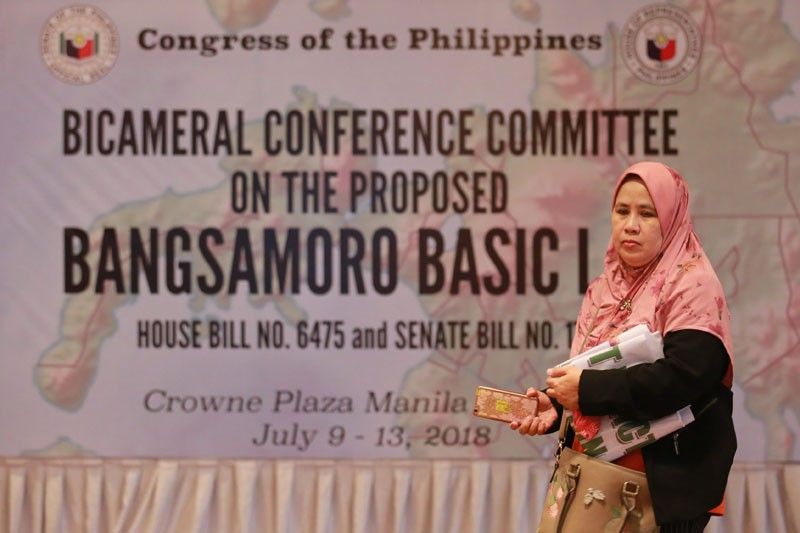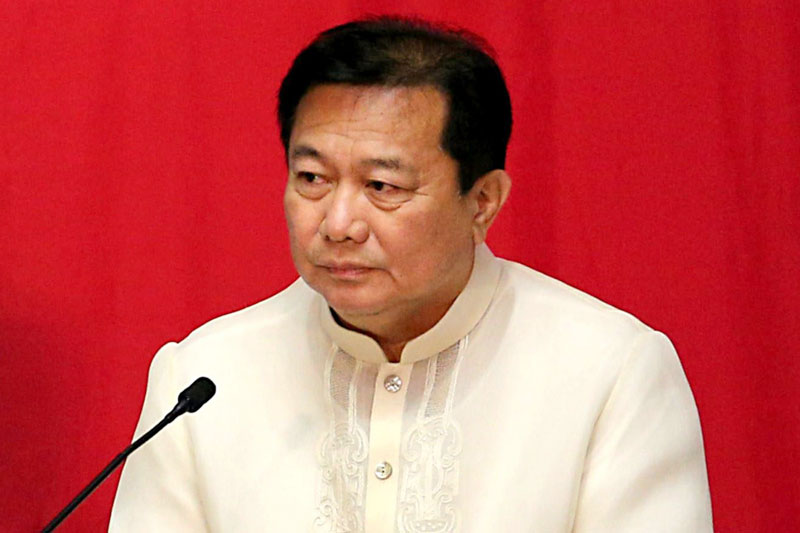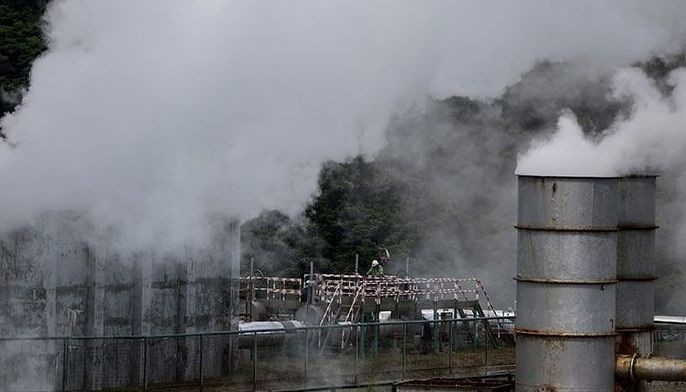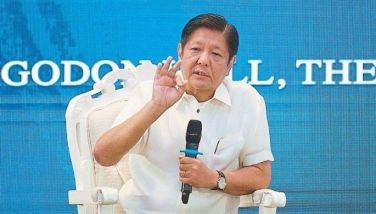BBL bicam hits snag on Bangsamoro territorial limits

MANILA, Philippines — Two days before their self-imposed deadline expires, senators and congressmen working to reconcile their conflicting versions of the proposed Bangsamoro Basic Law (BBL) hit a deadlock over the issue of territory of the envisioned autonomous region in Mindanao.
But the bicameral conference committee on the BBL made progress on other contentious provisions, such as deleting an anti-political dynasty provision and adopting a freedom of religion clause, among others.
The committee on Monday also formed six small groups to tackle the contentious provisions on powers of the proposed Bangsamoro government; taxes and fiscal matters; public order and national security; justice system or the Shariah; territory; and the structure of parliament.
The bicameral panel aims to come up with a final version of the BBL by tomorrow at the latest so that President Duterte can sign it into law when he delivers his State of the Nation Address on July 23.
“We set aside discussions on territory for the last day. The discussions were heated and intense so it was put on hold and we’re looking at resolving it tomorrow,” Senate Majority Leader Juan Miguel Zubiri, co-chairman of the panel, told reporters yesterday during a break in the closed-door proceedings.
Under Article 3 of the BBL, the new Bangsamoro region will be composed of the present geographical area of the Autonomous Region in Muslim Mindanao (ARMM); the cities of Cotabato and Isabela; plus six municipalities in Lanao del Norte and 39 barangays in the province of North Cotabato, and other areas that may want to join the region via a certified local government resolution.
The six municipalities – Baloi, Munai, Nunungan, Pantar, Tagoloan and Tangkal – voted for their inclusion in the ARMM in 2001 while the 39 barangays were included by the Bangsamoro Transition Commission, which drafted the BBL, because of their historical struggle for self-determination.
Many camps of the Moro Islamic Liberation Front (MILF) are located in the 39 barangays.
The House version does not include the 39 barangays.
Some congressmen, including those from Lanao del Norte, are opposing the inclusion of these areas and want a province-wide plebiscite to resolve the matter.
The inclusion of the areas into a new autonomous region was part of the Comprehensive Agreement on the Bangsamoro between the government and the MILF in 2014.
Zubiri said the bicameral panel would try to finish all work last night and tackle the territory today as the lone item on the committee’s agenda.
Anti-dropped dynasty
House Majority Leader Rodolfo Fariñas explained that congressmen and senators dropped the anti-political dynasty provision as it has “flaws” which “violate the equal protection clause of the 1987 Constitution.”
“It’s like a law creating a province and imposes a dynasty prohibition only to a certain elective position to the exclusion of others in that province, in particular, and to the whole country, in general,” Fariñas told reporters yesterday.
“It applies only to a party representative but not to a district representative, and applies only to elective officials of the proposed region to the exclusion of all other elective officials of the country.”
“It would also disqualify the second civil degree relatives by affinity of a party representative but not the same people with whom such party representative is cohabiting or living in without the benefit of marriage,” he added.
Fariñas said a senator pointed out that a similar prohibition is contained in the Sangguniang Kabataan Reform Act (SK Law), but he noted that the law applies to all SK in the country without distinction.
“Thus, it does not violate the equal protection clause as it applies to all those belonging to the class so distinguished,” he explained.
“We did not even object but just called the Senate’s attention to the constitutional infirmity of the prohibition as crafted. The Senate panel decided to remove it from their bill; hence, there was no conflicting provision that we had to reconcile on the matter,” he added.
Vice President Leni Robredo expressed yesterday disappointment over the removal of the anti-dynasty provision in the proposed BBL.
“This is disheartening because we all know under the 1987 Constitution there’s a provision stating that Congress should pass an anti-political dynasty provision,” Robredo said at a press conference yesterday.
She said the BBL could be another opportunity for Congress to add an anti-dynasty clause after the SK Law.
“The commentary I read said that the reason why it was deleted was because it will be discriminating because there’s no national law that was passed on anti-dynasty. But we have to take note of the SK Reform Law, which is already there,” Robredo said.
“If it’s really for the common good, I don’t believe that is discriminatory,” she said.
Sen. Francis Escudero said the provision was deleted because it “applies only to party-list reps and not to the other members of parliament or other officials of the Bangsamoro.”
Robredo pointed out that an anti-political dynasty provision is also the “selling point” of the draft federal constitution.
Other provisions
Since Monday, the committee was able to agree on some provisions including Article XII on taxation and fiscal matters where the Bangsamoro government will fully retain revenues from documentary stamp tax, estate tax, donor’s tax and capital gains tax.
The panel also made the annual block grant of five percent of the net collections of the bureaus of Internal Revenue and Customs.
Lawmakers also agreed to do away with the enumeration of “basic rights” of the Bangsamoro residents since the Constitution already stated them.
The committee was close to removing the listing of the powers of the national government and the Bangsamoro government, and instead just enumerate the powers of the latter to avoid confusion.
For Article 11 of the BBL regarding Public Order and National Security, the committee maintained provisions that regional military and police units will be under the direct control and supervision of the Armed Forces of the Philippines and the Philippine National Police.
The Bangsamoro parliament was also barred from appropriating funds to purchase firearms, explosives and other weaponry.
The committee approved a provision included by the Senate ensuring the free exercise of religion in the proposed Bangsamoro autonomous region.
Sen. Joel Villanueva, who authored the provision in the BBL, said Bangsamoro people “should be protected from harassment or any undue pressure, coercion and violence on account of religion.”
“We need to be mindful of the fact that people are harassed or subjected to violence because of their choice of beliefs in certain areas of the country,” Villanueva said.
“Given my concerns, what is the strongest guarantee we can extract from the regional government that it will be proactive in protecting this freedom?” the senator asked.
He said “religion plays a big role in shaping the beliefs, backgrounds and acts of the people living in the area.” – With Helen Flores, Delon Porcalla, Roel Pareño
- Latest
- Trending



























